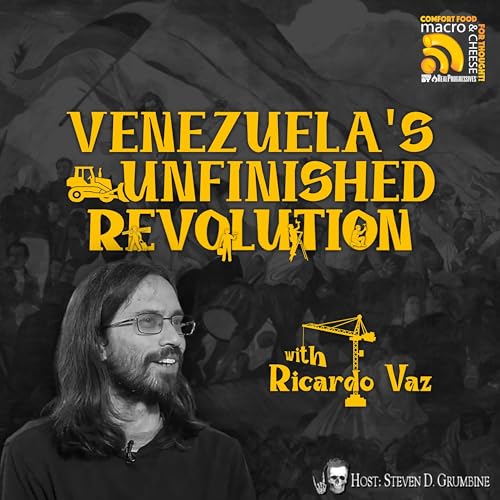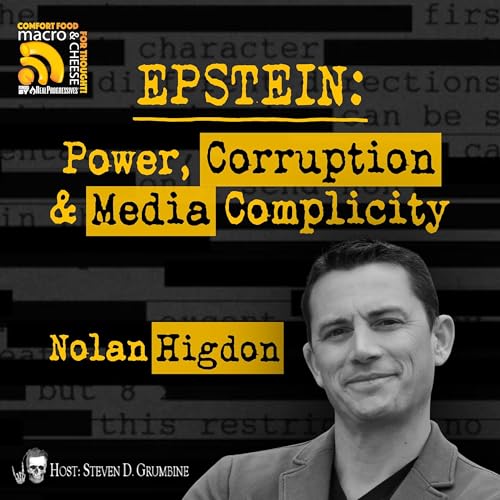** Every Tuesday evening, we host an online gathering of friends and newcomers, listening to and discussing our podcast. 8pm ET/5pm PT. Join us! After the episode drops, you’ll find the registration link at the top of our website: realprogressives.org
This week Steve invited Gabriel Rockhill to talk about his new book Who Paid the Pipers of Western Marxism? Vol 1 of The Intellectual World War.
The war on communism is about protecting imperial super-profits, keeping cheap labor and resources flowing from the Global South to the imperial core. It has never been about lofty values and freedom fries. So why does the empire care about books, grants, and academic careers?
Gabriel’s investigation begins with a potent symbol: the legacy of Che Guevara. We know the CIA hunted and executed him. Less known is their parallel mission to assassinate the legacy of his thoughts. By seizing and editing his Bolivian diaries, US intelligence and its media assets would control the narrative of his struggle. It’s a microcosm of a vast, systemic project. It reveals that empires understand a fundamental truth: the pen can be mightier than the sword. That might sound trite but think about it: to control populations and maintain global dominance, you must control the realm of thought, the very imagination of what is possible.
The true target of this intellectual war has never been abstract Marxist theory. It is actually existing socialism: the tangible, state-building projects that succeeded in breaking the chains of imperialism. From the Soviet Union and China to Cuba, Vietnam, and beyond, these movements achieved the unthinkable: they halted the imperial value flow. They stopped the hemorrhage of natural resources and cheap labor from the Global South to the capitalist core, claiming their right to self-determination and independent development. This was the existential threat: a model proving that escape from the imperialist world-system was achievable. The panic in the halls of power was not over esoteric debates about Hegelian dialectics, but over the loss of super-profits and the empowering example of successful liberation.
Gabriel and Steve discuss why dialectical and historical materialism is more than just a lofty sounding term. It actually matters. It’s like the anti-virus software for propaganda. Instead of being knocked over every time a new headline drops, we have a framework for seeing patterns. Coups, destabilization, narrative management, the whole traveling circus? They all make sense. And they’re all connected. (In fact, you can’t listen to this episode without hearing the dialectical relationship between material control and the control of ideas.)
Using the Marxist lens, Gabriel analyzes the socioeconomic base of the “theory industry” and a certain brand of Western or academic Marxism that turns class struggle into a grad-seminar aesthetic and cultural war hobby, safely disconnected from organizing, anti-imperialism, and actual movements. He argues the capitalist system naturally fosters and funds ideas that secure its survival, making knowledge production a commodity-driven system focused on exchange value (career advancement, book sales) rather than use value for liberation.
Gabriel isn’t just naming names for sport. (And besides, in the US we already have a long and colorful tradition of naming names, so let’s not be clutching our pearls.) He’s pointing at a system that manufactures respectable “leftist” ideas that don’t threaten empire. As the imperial core becomes more openly brulat at home, we need to reconnect with the international, anti-imperialist thread of revolutionary Marxism if we’re serious about changing anything.
Gabriel Rockhill is a philosopher, cultural critic, and activist. He is the Founding Director of the Critical...
 1 hora e 4 minutos
1 hora e 4 minutos 54 minutos
54 minutos 1 hora
1 hora 1 hora e 3 minutos
1 hora e 3 minutos 1 hora e 24 minutos
1 hora e 24 minutos 56 minutos
56 minutos Dec 27 20251 hora e 3 minutos
Dec 27 20251 hora e 3 minutos 1 hora e 8 minutos
1 hora e 8 minutos
